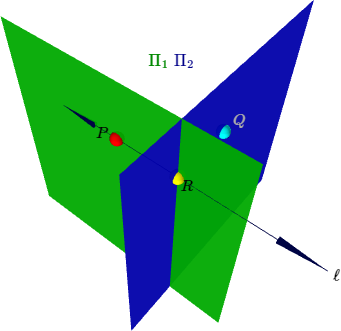
The following is an excerpt from Geometry: Incidence and Transformations, the first of three Geometry courses in the self-paced Elements of Mathematics: Foundations (EMF) series. EMF covers Pre-Algebra through Precalculus, plus several university-level topics, with the depth and sophisitication needed to challenge and mathematically talented children. Limited Time Offer: The first EMF course is available at 25% off regular tuition for students who enroll on or before October 31, 2017. Learn more at www.EMFmath.com.
In this course and the next our main focus is on Euclidean geometry. As you have undoubtedly noticed, in the preceding courses we have quite frequently talked about, considered, and even worked with a wide variety of geometrical concepts. But we have been relying on common knowledge and your intuitive understanding of such things; we have only rarely hinted at the formal underpinnings of this very important and pervasive area of mathematics.
The history of the study of geometry is very long and honorable, springing out of humanity’s attempts to describe mathematically the forms, shapes, and patterns seen in the real world.
Roughly speaking, our intended plan of study in this course is as follows: Each of us has a store of experiences with real objects, their forms, and their shapes. These experiences will be refined as we draw pictures of objects, observe specially constructed models of objects, and think about experiments that could be performed with these objects. As we sharpen our experiences with physical objects, we will describe corresponding geometric objects (such as points, lines, and planes), and decide what properties these geometric objects should have if they are to be mathematical replicas of the real objects. Of course, geometric objects, like all other mathematical objects, are abstractions, so the only role that can be played by our drawings and experiments with physical points, lines, and planes is that of serving as a guide to the properties that should be ascribed to their abstract geometric counterparts.
The properties we ascribe to the geometric objects will be called agreements. That is, we will agree to accept a certain property about geometric points and lines, say, because our experience strongly suggests that physical points and lines have that property. Of course, agreements in geometry, as in real life, have consequences. This then is the activity of geometry: to find out what the consequences of the basic agreements are.
In other words, we shall agree that the geometric objects we wish to study have certain basic properties. We shall then deduce that geometric objects with these properties must also have certain other properties. We will discover these new properties, not by looking at the objects (remember, geometric objects are abstractions!) but by thinking about them. We will express our thoughts in arguments of the following general form: Since we have accepted our basic agreements, then we must also accept that such and such is the case. But then we are constrained to accept that thus and so, etc. Finally we examine these new properties in order to decide whether they too are compatible with our experience of physical objects. In this way, Euclidean geometry becomes the mathematics of the shapes and forms of the world around us.









